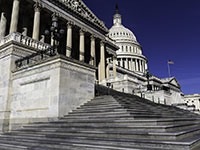On May 3, 2016, the Financial Industry Regulatory Authority announced that MetLife Securities, Inc. agreed to pay $25 million to settle allegations that the company misled its customers in tens of thousands of variable annuity replacement applications. The sanction represents FINRA’s largest fine related to variable annuities.
Variable annuities (“VAs”) are highly complex and highly regulated insurance contracts that guarantee their holders—typically retirees—a minimum payment at the end of an accumulation stage. When a consumer seeks to replace one VA for another, her broker must complete an Annuity Replacement and Transfer Disclosure (ARTD) setting forth the comparative cost and guarantee information about existing and proposed annuity contracts. In New York, brokers must also complete a “Regulation 60 Disclosure,” which contains a hypothetical illustration of death benefits and surrender values for existing and proposed contracts under various hypothetical market growth rates.










